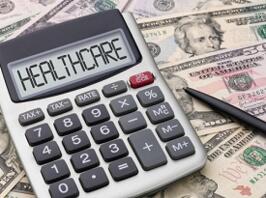Health Care Law
Voters See Worse Care, Higher Costs Under Single-Payer Health System
A number of the top contenders for the 2020 Democratic presidential nomination are championing a government-run, single-payer health care system, but voter support is down. Perhaps that’s because voters see the quality of care suffering, while their personal costs go up.
A new Rasmussen Reports national telephone and online survey finds that 36% of Likely U.S. Voters still favor a single-payer health care system where the federal government provides coverage for everyone. Forty-seven percent (47%) are opposed, while a sizable 17% are undecided. (To see survey question wording, click here.)
This is the highest level of opposition in nearly five years. A year ago, voters were evenly divided, with 43% in favor of a single-payer system and 43% opposed.
Fifty-two percent (52%) of Democrats favor a single-payer system, compared to 22% of Republicans and 34% of voters not affiliated with either major party.
Among all voters, however, 64% expect their personal taxes to go up if a single-payer health care system is established. Only six percent (6%) say their taxes will go down, while 17% think they will remain about the same. Twelve percent (12%) are undecided.
(Want a free daily e-mail update? If it's in the news, it's in our polls). Rasmussen Reports updates are also available on Twitter or Facebook.
The survey of 1,000 Likely Voters was conducted on August 4-5, 2019 by Rasmussen Reports. The margin of sampling error is +/- 3 percentage points with a 95% level of confidence. Field work for all Rasmussen Reports surveys is conducted by Pulse Opinion Research, LLC. See methodology.
With health care shaping up as a critical voting issue again next year, voters continue to rate cost reduction as a key reform.
But 45% of voters say health care costs will go up if a government-run health care system replaces existing private insurance companies. Only 23% believe costs will go down, while 18% say they will remain about the same. Fourteen percent (14%) are not sure.
A plurality (47%) also thinks health care will be worse under a government-run system. Twenty-three percent (23%) say it will be better. Eighteen percent (18%) expect quality to stay about the same. Eleven percent (11%) are undecided.
Democrats are much less pessimistic about a single-payer health care system than Republicans and unaffiliated voters are which helps explain the power of the issue in the Democratic presidential race.
Yet while Democrats are marginally more convinced that health care will get better under a single-payer system and that costs will go down, even they think their personal taxes will go up if it is implemented.
The older the voter, the more likely they are to oppose a single-payer, government-run system and to expect health care to get worse.
Fifty-six percent (56%) of all voters think more free market competition between insurance companies will do more to reduce health care costs that more government regulation.
While voters are critical of the U.S. health care system in general, 67% rate the care they personally receive as good or excellent.
Additional information from this survey and a full demographic breakdown are available to Platinum Members only.
Please sign up for the Rasmussen Reports daily e-mail update (it's free) or follow us on Facebook. Let us keep you up to date with the latest public opinion news.
The survey of 1,000 Likely Voters was conducted on August 4-5, 2019 by Rasmussen Reports. The margin of sampling error is +/- 3 percentage points with a 95% level of confidence. Field work for all Rasmussen Reports surveys is conducted by Pulse Opinion Research, LLC. See methodology.
Rasmussen Reports is a media company specializing in the collection, publication and distribution of public opinion information.
We conduct public opinion polls on a variety of topics to inform our audience on events in the news and other topics of interest. To ensure editorial control and independence, we pay for the polls ourselves and generate revenue through the sale of subscriptions, sponsorships, and advertising. Nightly polling on politics, business and lifestyle topics provides the content to update the Rasmussen Reports web site many times each day. If it's in the news, it's in our polls. Additionally, the data drives a daily update newsletter and various media outlets across the country.
Some information, including the Rasmussen Reports daily Presidential Tracking Poll and commentaries are available for free to the general public. Subscriptions are available for $4.95 a month or 34.95 a year that provide subscribers with exclusive access to more than 20 stories per week on upcoming elections, consumer confidence, and issues that affect us all. For those who are really into the numbers, Platinum Members can review demographic crosstabs and a full history of our data.
To learn more about our methodology, click here.




